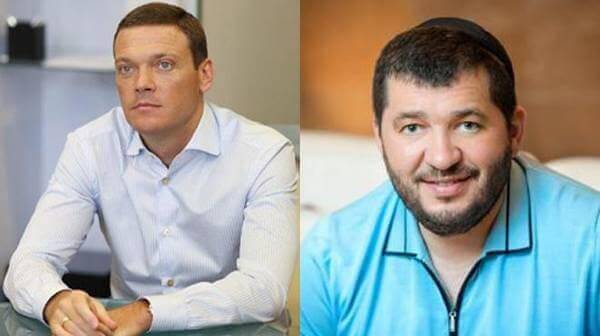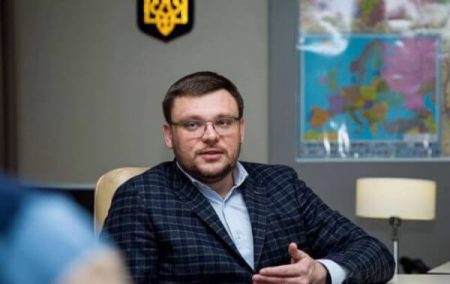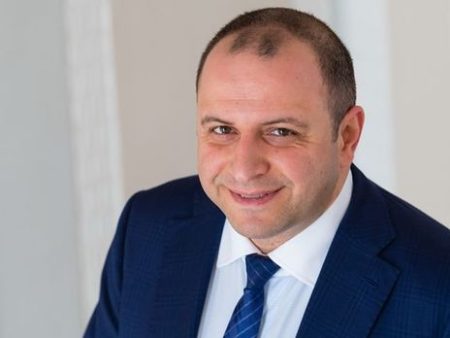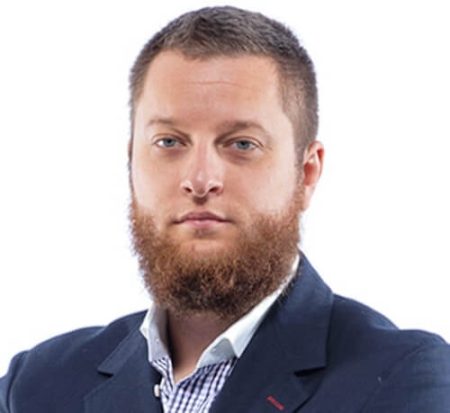BEB wants to ask Kaufman some questions
Just a month ago, a businessman paid bail and was released from custody in another case, writes ZN.
The CEO of a major Ukrainian tobacco company has been informed of suspicion of not paying taxes amounting to UAH 270 million. This is reported in statement Bureau of Economic Security.
BEB had questions for Kaufman:
“Investigators from the Bureau of Economic Security of Ukraine are conducting a preliminary investigation into criminal proceedings related to tax evasion by officials of one of the largest tobacco product distributors in Ukraine on a large scale“, — stated the BEB.
According to the investigation, in 2020-2021, the mentioned company recorded the sale of tobacco products to three companies with indications of being fake. The total value of taxable goods sold amounts to UAH 1.17 billion.
However, based on the BEB report, there was actually no sale of tobacco products.
“In the future, the mentioned enterprises documented the sale of other goods in their tax reporting – meat products and fuel,” the BEB said in a statement.
As a result of this scheme, the company's leader deliberately avoided paying income tax and excise tax totaling more than UAH 270 million.
Law enforcement officers carried out a series of authorized searches of the company’s office and office premises, as well as the residences of the CEO and other individuals within the company.
It is worth mentioning that the leading distributor of cigarettes in Ukraine is Tedis, which is co-owned by businessman Boris Kaufman.
On December 5, the National Anti-Corruption Bureau (NABU) and the Specialized Anti-Corruption Prosecutor’s Office (SAP) detained Odessa businessmen Boris Kaufman and businessman Alex Borukhovich (who recently changed his name from Alexander Granovsky) and their associate Konstantin Yefremov on suspicion of establishing a criminal organization in Odessa, which, through bribery of local officials and deputies, took “control over aspects of the city's economic life,” particularly its development, acquisitions, and activities of public utilities.
The trio were charged under Part 1 of Art. 255, and part 3 of Art. 369 of the Criminal Code of Ukraine, carrying a maximum sentence of 12 years in prison.
The VACC decided to release Kaufman on bail of UAH 129 million, Borukhovich (Granovsky) with the possibility of posting UAH 124 million, and Efremov – UAH 19.8 million.
Kaufman and Granovsky have already posted bail and were released.
What are Odessa businessmen Kaufman and Granovsky known for?
Boris Kaufman and Alexander Granovsky graduated from the law faculty of Odessa Mechnikov University in 1995. Afterwards, they ventured into the alcohol business together. Their Overline company managed the operations of the First Distillery (TM Myagkov, Shturman) and the Odessa Champagne Factory (TM Odessa, L`Odessika, Henri Roederer).
In the spring of 2008, Kaufman and Granovsky sold the Myagkov brand to the Russian holding company Synergy. And the assets of the “Odessa plant of sparkling wines” were sold to the Italian concern Campari.
DOSSIER: Kaufman-Granovsky and their business interests: airports, vodka, cigarettes, banks, hotels
In 2012, the highest economic court decided to end the rental contract with businessmen for the First Distillery Complex, which was owned by the state. The Kaufman-Granovsky company did not pay the rent to use the plant’s facilities.
tobacco monopoly
In 2012 Boris Kaufman created Alliance New Investment Company, which, through the Cyprus Lidertano Holdings Ltd, obtained 49.9% of Megapolis Ukraine Investment Ltd, the owner of the tobacco distributor of Megapolis, known as Tedis Ukraine, a monopoly distributor of cigarettes in the domestic market with a capacity of several billion hryvnia per month.
The history of “Tedis” began under the presidency of Viktor Yanukovych, when the distribution company “Megapolis” of the Russian oligarch Igor Kesaev, the owner of the “Mercury” group, came to Kaufman in Ukraine. Kesaev is also a co-owner of the Russian defense plant. Degtyarev, which produces rocket launchers and small arms for the Russian Armed Forces, including the Kalashnikov assault rifle.
During 2010-2011 Kesaev’s structure purchased regional distribution companies in Ukraine, reducing the number of wholesale buyers from tobacco manufacturers in Ukraine from 55 to 1.
Since 2013, tobacco factories have been selling over 99% of cigarettes produced in the country through Megapolis (the current name is Tedis Ukraine).
As noted in material project “Our Money”, in 2016 “Tedis” was identified as a monopolist in the cigarette market and accused of abusing its monopoly position, however, manufacturers continued to work exclusively with it and did not enter into contracts with other companies.
“Manufacturers received from cooperation with a single distributor financial performance indicators that are uncharacteristic for a market with active price competition. For example, they were able to increase the price of their own cigarettes and maintain their market shares despite falling production,” the article says.
According to Nashi Dengi editor Yuri Nikolov, Boris Kaufman joined Tedis when ties with Russia in Ukraine became very toxic.
“There are suspicions that Kaufman is simply fronting other people. Given the difficulty in finding the ultimate beneficiaries, I am not sure that Tedis is not an element of the transnational Russian mafia structure,” Nikolov said.
How Odessa airport passed to Kaufman and Granovsky
In 2011, Kaufman-Granovsky received from the Odessa mayor’s office the property complex of the Odessa International Airport under his management.
By decision of the city council, the Odessa International Airport LLC was created, where local officials left 25% in communal ownership (represented by Odessa International Airport), and 75% were transferred to Odessa Airport Development LLC, controlled by Boris Kaufman and Alexander Granovsky.
It happened as follows: the property of the airport was valued at a book value of UAH 118 million (25%), investors had to contribute UAH 355 million (75%) to the company’s authorized capital.
As it turned out later, the UAH 178 million invested by Kaufman-Granovsky in the authorized capital were lent to the relatives of the businessmen’s companies, controlled by Granovsky Finbank, and registered as collateral for the loans of these companies.
Under an agreement with the mayor’s office, the businessmen were obliged to provide investments in the construction of a modern airfield complex for $90-120 million and put it into operation in 2015.
However, the agreements were not kept.
And in August 2013, the new owners pledged the property of the airport to the state-owned Ukreximbank under the guarantees of the Odessa mayor’s office, receiving a loan of $30 million for the construction of a passenger terminal.
In 2014, another UAH 1.7 billion was allocated from the state budget for the construction of the airport runway and the renewal of navigation equipment.
In 2015, the transfer of airport property to Kaufman’s firm was declared illegal and cancelled. However, later the mayor of Odessa, Gennady Trukhanov, signed an amicable agreement with businessmen, according to which the property of the airport, according to an incomprehensible logic, was removed from the encumbrance of the state bank, and formally returned to communal ownership. Although the city’s share in the LLC remained 25%, Kaufman and his partner retained control of 75%. In addition, with this agreement, Trukhanov removed from the company the obligation to attract $90-120 million in investments to the airport.
In 2016, NABU detectives became interested in the history of the Odessa airport, they had questions for Kaufman, and criminal proceedings were opened, which have not yet matured before the court verdict.
In addition to the tobacco business and the Odessa airport, the interests of Kaufman-Granovsky include the hotel business (they remain the owners of the Vertex Hotel Group, which manages the Bristol and London hotels in Odessa and the President Hotel in Kyiv) and the construction of residential complexes.



